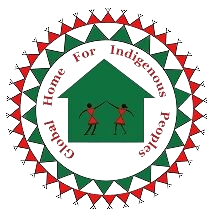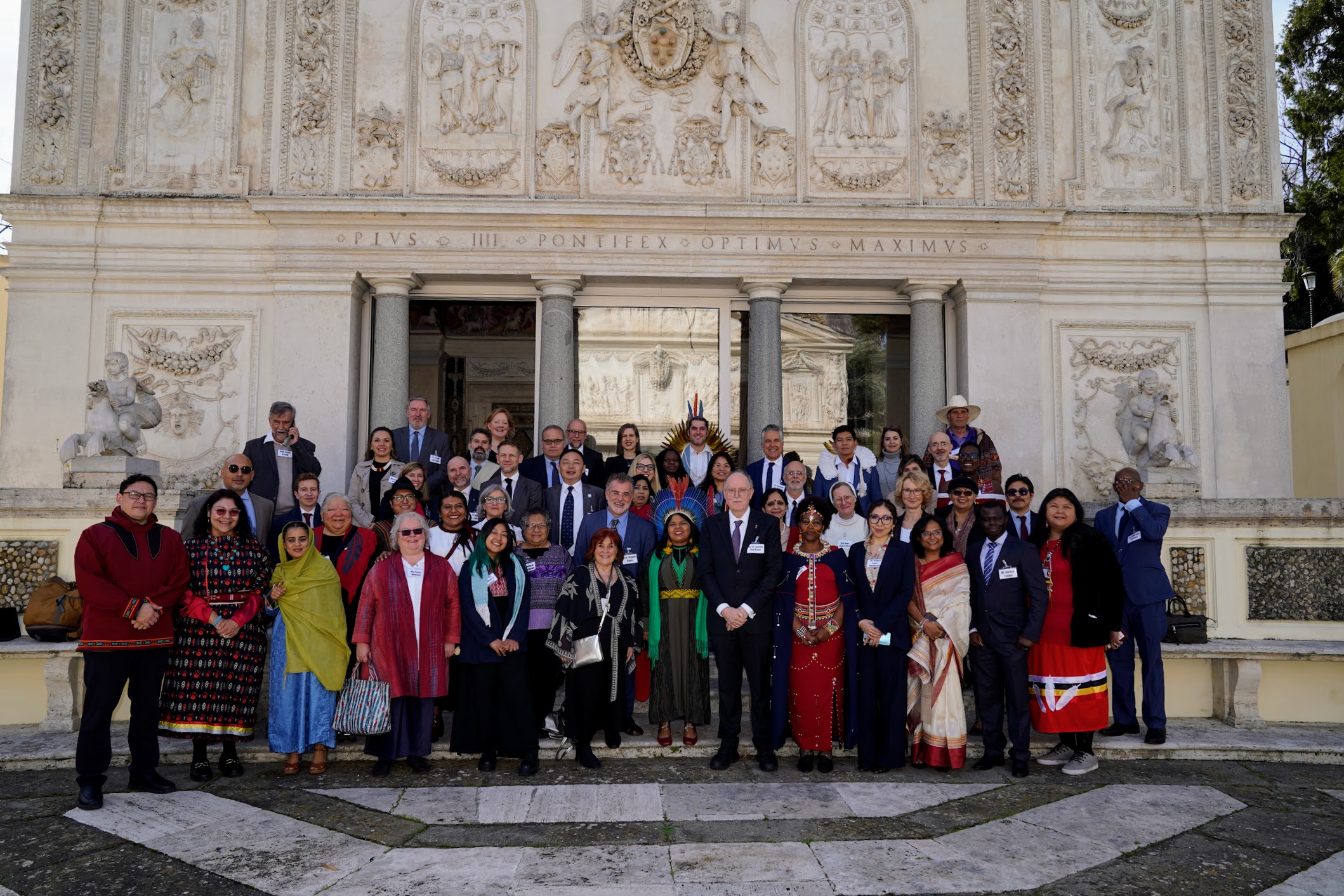
14-15 March 2024, Vatican City
Global Home for Indigenous Peoples was invited by the Pontifical Academies of Sciences and Social Sciences to a conference (14-15 March 2024) titled: Indigenous Peoples’ Knowledge and Sciences – Combining Traditional Knowledge and Science on Innovations for Resilience to Address Climate Change, biodiversity loss, food security, and health. More than 50 participants from Indigenous organizations, organizations working with Indigenous organizations, UN bodies, and universities attended the 2-day event. They also got an opportunity to meet the Pope.
Brijlal Chaudhari, President of Global Home attended the conference and presented his paper, “The Importance of Indigenous Peoples for Climate, biodiversity, food, and nutrition agendas, and building bridges between Indigenous Knowledge and Sciences.”
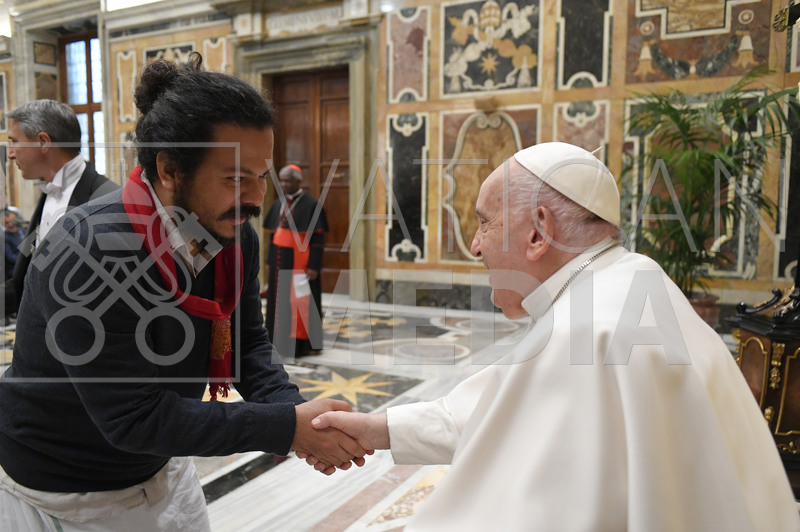
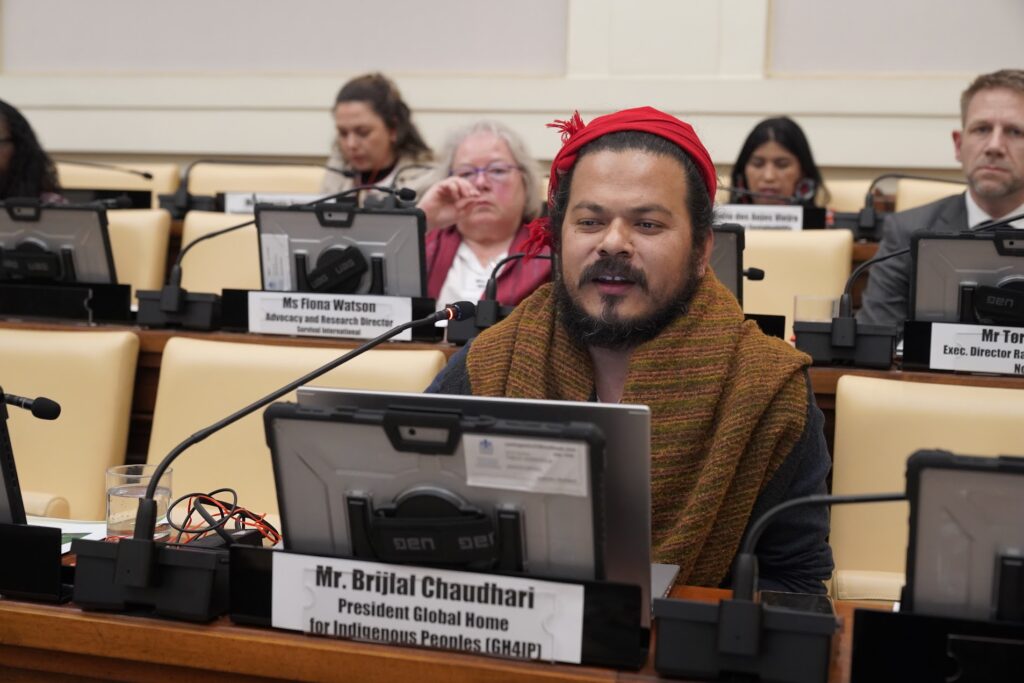
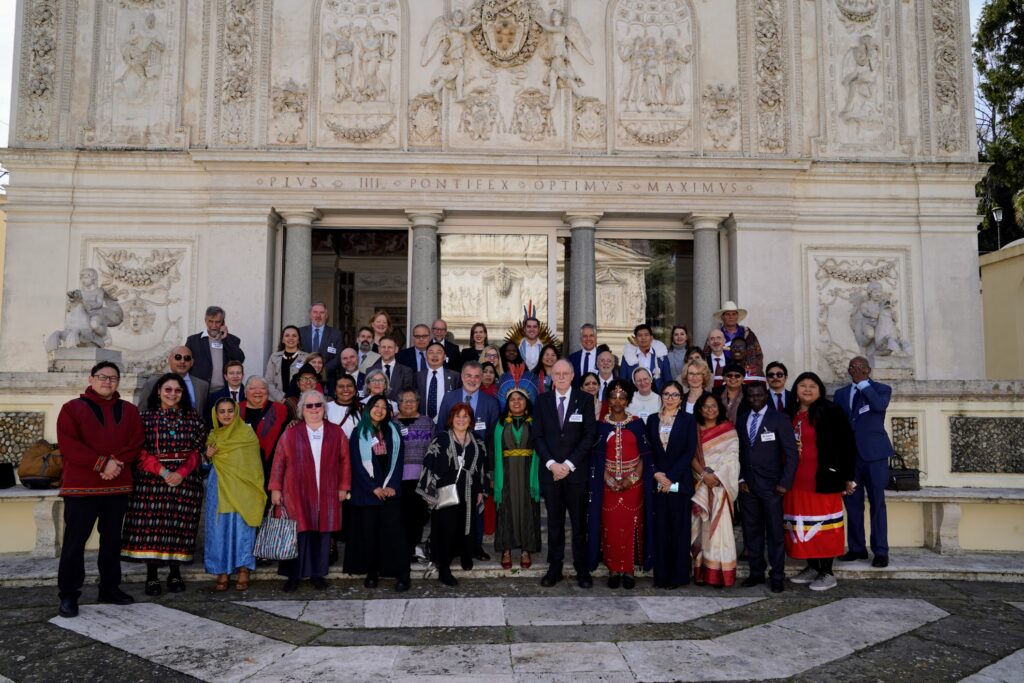
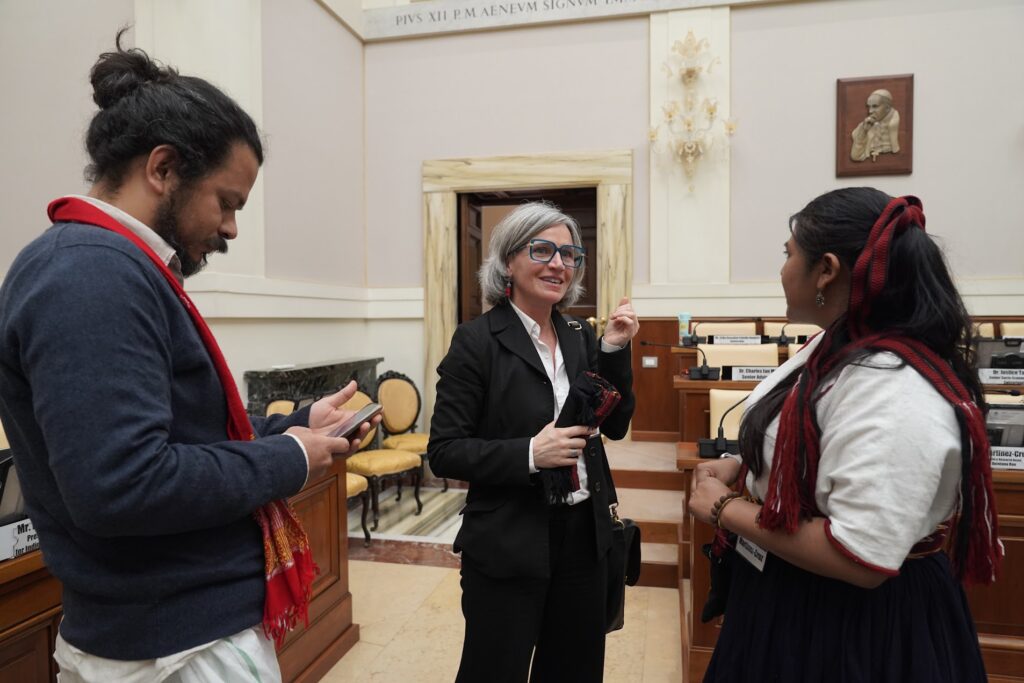
Indigenous science and its epistemologies are often questioned and disregarded as primitive and invalid. Indigenous Peoples have always been the object of scientific-social sciences research but not the co-creators of knowledge. Many scientists rely on Indigenous Peoples to guide their work by helping them to find wildlife, navigate rugged terrains, or understand weather trends (Sidik, 2022) but these relationships feel colonial, extractive, and unequal. Researchers drop into our communities with similar intentions as a mining company. They gather data and leave – never contacting the individuals of the communities involved in the research and excluding them from the publication process (Sidik, 2022). Similarly, Indigenous-led research also faces well-documented institutional barriers that limit full participation and visibility of Indigenous worldviews (Artelle, 2024).
Although the value of breading Indigenous science with Western science has been recognized to provide solutions for the mutual thriving of lands and cultures, we have only begun to scratch the surface of its benefits (Popp, 2018). Hence, this conference on Indigenous Peoples’ Knowledge and Sciences –combining traditional knowledge and science on innovations for resilience to address climate change, biodiversity loss, food security, and health is a step towards epistemic justice and an acknowledgment that we need other ways of knowing to illuminate a different way forward when we are faced with wicked challenges of a rapidly changing environment. The efforts from the Pontifical Academy of Sciences and Social Sciences in partnership with Indigenous Peoples will hopefully take a concrete step to replace the present-day monoculture of Western scientific thinking that attempts to homogenize valid knowledge with an ecology of knowledge.
Read the presentation here
